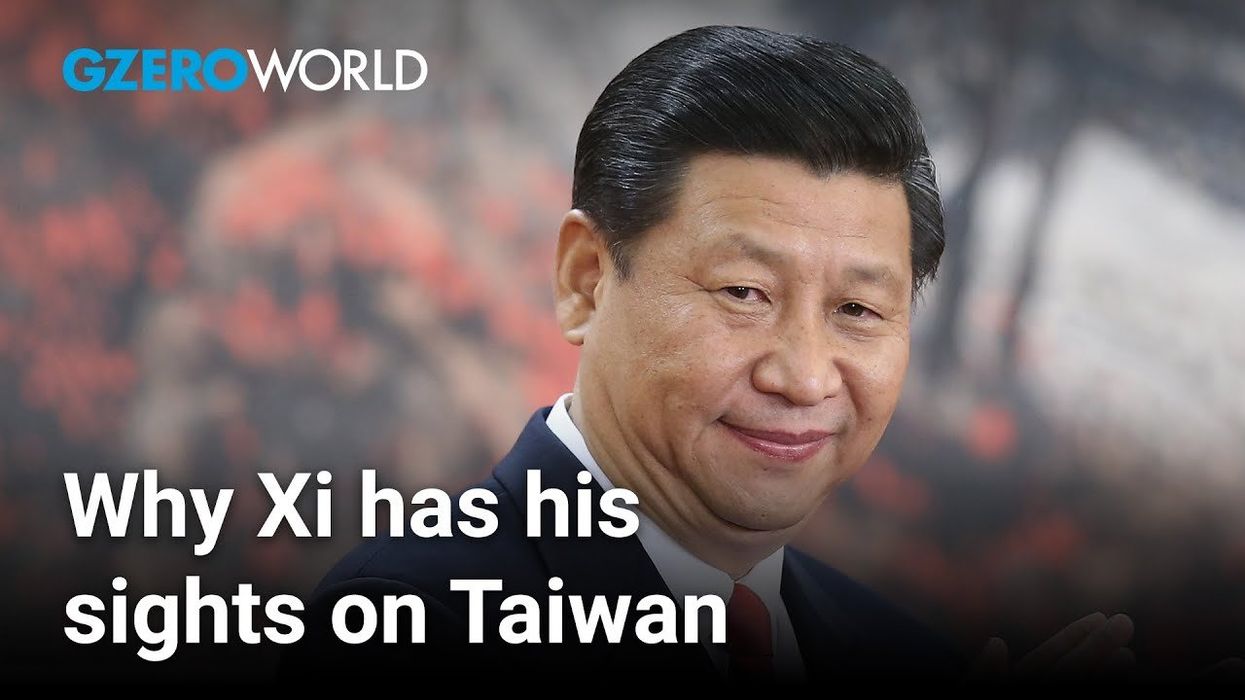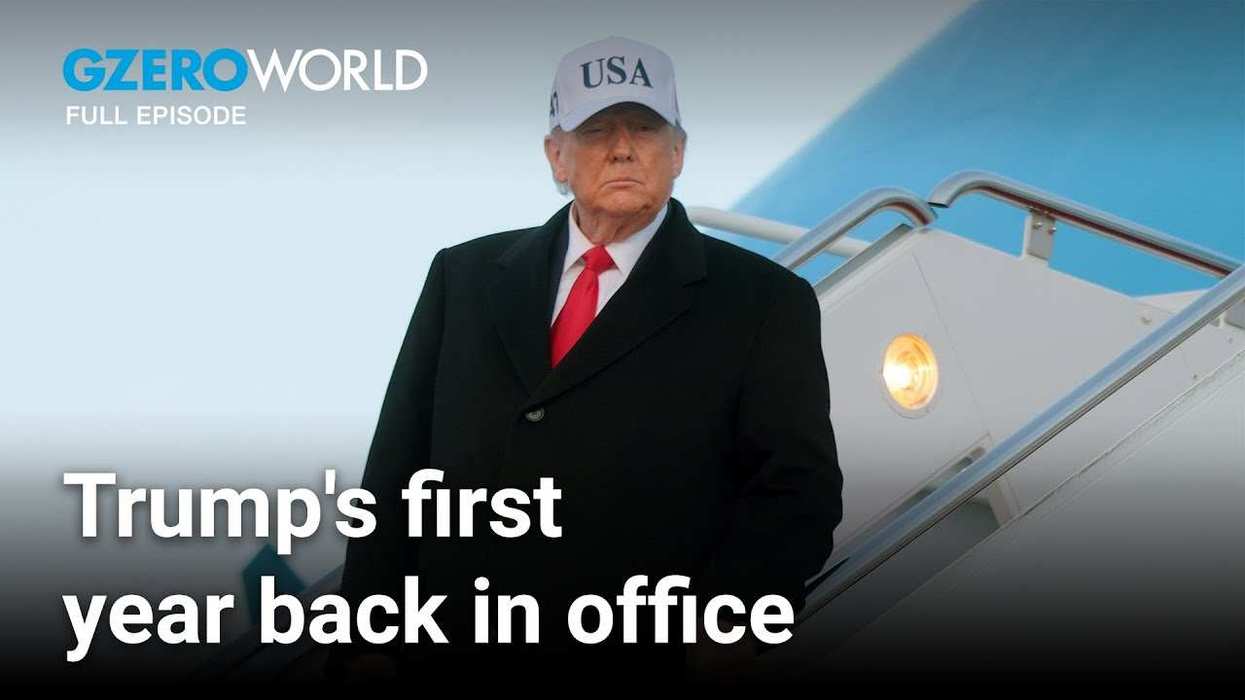VIDEOSGZERO World with Ian BremmerQuick TakePUPPET REGIMEIan ExplainsGZERO ReportsAsk IanGlobal Stage
Site Navigation
Search
Human content,
AI powered search.
Latest Stories
Sign up for GZERO Daily.
Get our latest updates and insights delivered to your inbox.
Global Stage: Live from Munich
WATCH RECORDING
GZERO World Clips
Highlights from the GZERO World with Ian Bremmer weekly television show.
Presented by
"Xi has made it clear he plans to go solve the Taiwan problem while he's still in office." That's New York Times national security correspondent and New Cold Wars author David Sanger on why China's leader is setting his sights on the slender island off its eastern coast. Xi Jinping has made no secret of his belief that Taiwan belongs to China and that it is a national security imperative to bring it under Chinese sovereignty. But it's also an American national security imperative to prevent Xi from doing so, says Sanger. That's because the small island nation still manufactures the vast majority of the critical semiconductor microchips that power our modern world in both China and the United States.
"What Biden has done here in the semiconductor field of trying to choke the Chinese of the most advanced chips, but also the equipment to make those chips while trying to build up here, is the right step." At the same time, however, the Biden administration's push to manufacture more chips in the United States may also imperil the "silicon shield" that currently protects Taiwan from its Chinese neighbor. Nevertheless, Sanger argues that it's not just an industrial imperative for the United States to become self-sufficient in this area. It's a national defense imperative one as well."For our long-term security, it is much more important to build those [semiconductor factories] fabs than it is to build those aircraft carriers."
Catch GZERO World with Ian Bremmer every week on US public television (check local listings) and online.
Keep reading...Show less
More from GZERO World Clips
President Trump against the world
February 16, 2026
How Singapore navigates a fragmented world
February 02, 2026
Singapore thrived on globalization. Now what?
January 30, 2026
Can Europe stay united?
January 23, 2026
One year into Trump 2.0: How the world has changed
January 18, 2026
How Trump transformed the US presidency
January 16, 2026
Frank Fukuyama on Venezuela: "This is a nation-building exercise"
January 13, 2026
Maduro is gone. What happens now?
January 12, 2026
Venezuela after Maduro and Trump unleashed
January 09, 2026
GZERO Series
GZERO Daily: our free newsletter about global politics
Keep up with what’s going on around the world - and why it matters.


















